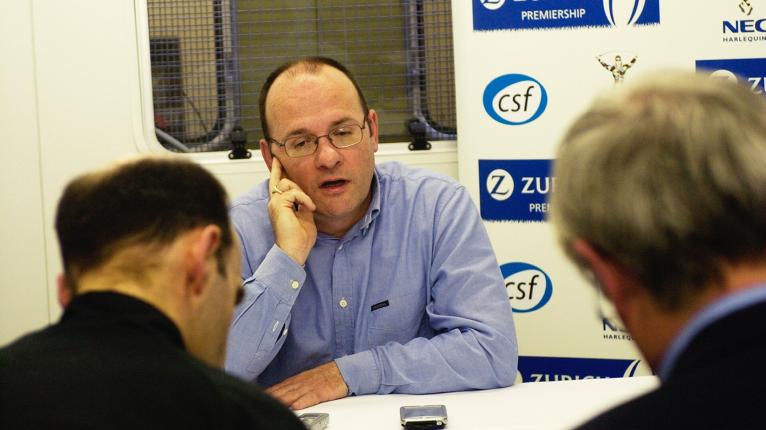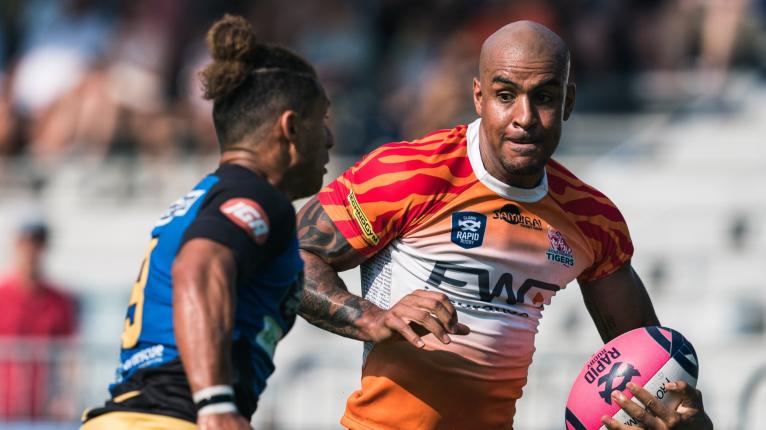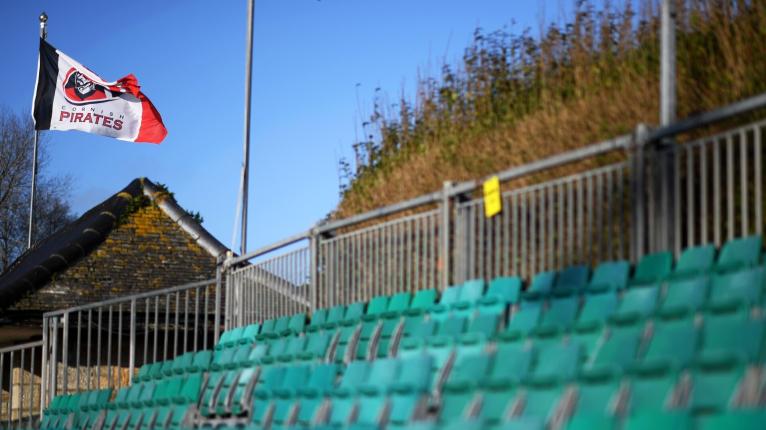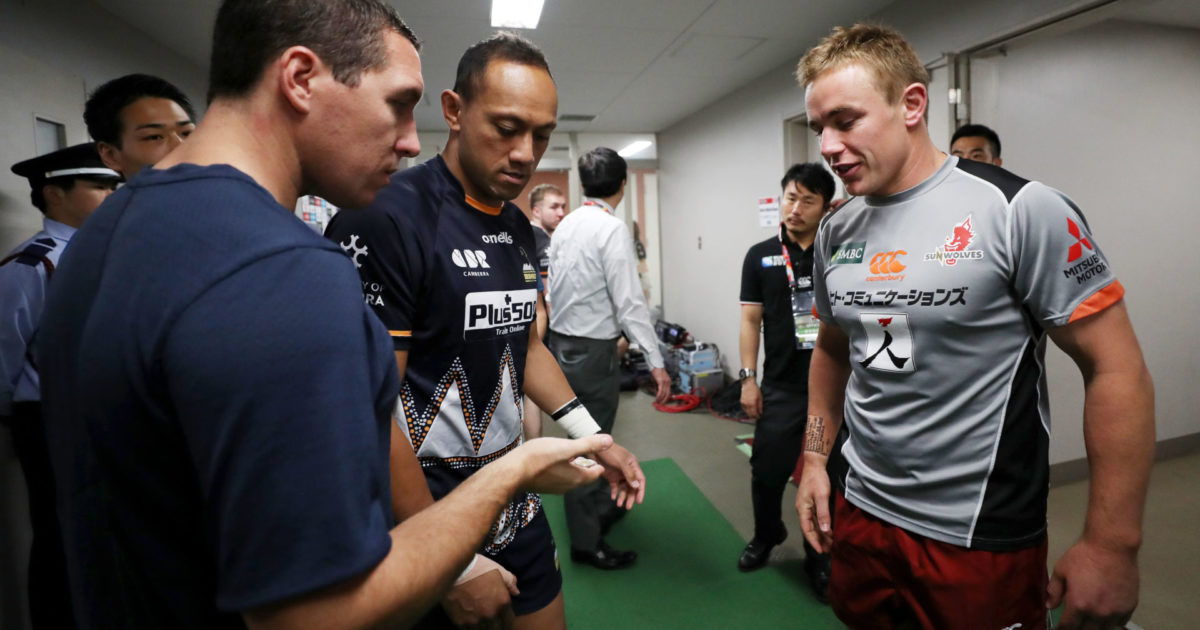'What does a rugby player deserve? It's the wrong question… the whole cost base is out of whack'

Global Rapid Rugby was 2020’s blink and you missed it rugby tournament. Three 70-minute matches, a single round of fixtures in Perth and Suva on March 14 and that was that. Nothing more. The fledgeling six-team competition was suspended the following day and its season cancelled on April 7. It was a massive blow. After two years of toe-in-the-water, ad-hoc showpiece matches, this was supposed to be the new kid on the block’s headline-making arrival, its inaugural home and away format having Aus $1million up for grabs.
Then came the coronavirus and that was that, a multitude of ambitious plans were canned overnight until 2021 and a whole heap of man-hours catering for an event featuring Asian, Australian and Pacific teams had gone to waste. Seven months into his role as tournament CEO, the upheaval should have been enough to bring a tear to Mark Evans’ eye. If it did, he wasn’t telling. Instead, he’s stoically keeping the show on the road regardless of the hardships.
He managed to get home from Australia before the lockdown kicked in but the ramifications of having a head office in Perth and a pile of colleagues he needs to touch base with means he is burning the midnight oil in England, usually working from 1am to four in the morning before finishing off with a second wind from 8am through to two in the afternoon.
What the former Harlequins CEO has experienced in his short time at the helm since last October has been enough to convince him that the Andrew Forrest-inspired concept – formulated on the back of the Western Force’s controversial expulsion from Super Rugby – is here to stay. Not some short-lived experiment that will quickly fizzle out whenever the world eventually reopens and rugby is again on the agenda.
“A lot of learnings, quite a lot of it logistic… what the travel plans are, the scheduling, all that kind of stuff,” he told RugbyPass when asked to reflect on fleeting first-year impressions. “That now is lost. We only got one round away but we showed how flexible we can be as we moved the Shanghai team out of China, we moved the Hong Kong schedule with a month out. It was interesting and we learnt a lot. Hopefully, that will stand us in good stead.
https://www.instagram.com/p/BqMWiomAKoQ/
“The fundamentals behind the tournament are very much shifting the focus of rugby in that part of the world into time zones as opposed to hemispheres. In time it will prove to be the right way to take the game because it makes sense. That is one of the reasons I went (for the job). The days of flying between Buenos Aires or Cordoba and Auckland or Dunedin (in Super Rugby) will no longer be with us. Never mind the virus. There’s the cost, there’s the player welfare, there are the environmental issues which will not get any less as times goes on, so you have got to reconfigure things.
“We are doing the right things and therefore you would hope that over time you will attract a better calibre of player. That is a reasonable expectation… we’d love to be going to eight teams before 2021 if we possibly can.
“Eight is quite a good number. Home and away, 14 games, Grand Final series. The move is towards shorter and sharper competitions frankly,” he continued, referencing his admiration that Perth refused to be forced out of professional rugby when Rugby Australia made its cull. “It just shows you the resilience of Western Australia generally. It’s that sort of place and sometimes out of a sense of injustice good things can come and this is probably one of those.”
Evans is a fan of Australian sports, his familiarity with the immensely competitive landscape greatly informed by his spell at the head of NRL’s Melbourne Storm, that two-year job allowing him to experience a different rugby code following an eleven-year stint at Harlequins which ended in March 2011.
Having five major field sports – union, league, NRL, A-League and AFL – all jostling for attention sharpens the mind. “If you’re in that competitive a market, battling for the broadcast dollars, sponsorship dollars and eyeballs, audience, spectators and members, you tend to be innovative. I’m old enough to remember the Australian dispensation (the late 1960s law tweak that meant you could no longer kick directly into touch from outside the 22).
“The Australians were also the ones in the ’90s doing some interesting work on a hybrid union-league game which I quite liked but never quite took off because of various reasons. But it’s just in their DNA really. They’re always looking to tweak things, partly because their two biggest other field sports, league and AFL, are largely masters of their own destiny.
“If they want to tweak the rules they can because hardly anyone else plays. It’s interesting the NRL rules are not identical to the international rules, they just change it if they want to change it. So that’s part of the DNA to improve the product and it’s interesting World Rugby is trialling the idea of the 50/22. That was a Global Rapid Rugby innovation that is now just about to be adopted by everybody.
“In a way, Global Rapid Rugby is an incubator for new ideas and that sits well with the Australian DNA because it’s a commercial imperative to make a product more engaging.”

Evans’ wish is that rugby globally would be more tolerant towards embracing change. More than 20 years ago, while finishing up as Saracens’ director of rugby before stepping into a dual CEO/director of rugby role at Quins, he feared the then teething professional sport was worryingly struggling to pay its way.
That’s an apprehension that hasn’t changed since and his hope is the coronavirus stoppage will force club owners in places like England to finally wise up, rip up the currently broken financial model, get wage inflation under control and imagine fresh ways for the sport to properly thrive as a viable business.
“Compared to all the other issues and the recession that will undoubtedly come and the hardship people will have to endure, and the human cost of lost loved ones that has touched quite a number of us, this [rugby’s flawed business model] is all pretty inconsequential.
“It has become a cliche to reset, recalibrate, but it’s true. There is going to be so much pressure financial and otherwise on so many parts of the game globally that if anything was going to make people stop kicking the can down the road and have a serious look at putting a model together that equated costs and revenues and grow in a balanced manner, this is the time.

“It only needs one or two markets to inflate and the ripple effects on other markets are damaging. You look at the number of Australians playing out of Australia, the number of South Africans. They are other factors at play there – I’m not blind to the geopolitical risk, but this is a terrific opportunity to tackle player salaries.
“Everybody accepts the game is incredibly demanding physically and injuries are commonplace and the careers are relatively short, but that isn’t how wage levels are determined in any walk of life. What does a rugby player deserve? It’s the wrong question.
“What do miners – who do a very dangerous, difficult, physically demanding job – deserve? The fact is wages are set by the market largely, but sport is different in the sense that you also need the teams to be roughly equal to make it enticing, exciting and compelling.
“So you go the players should get a fair slice, a fair percentage of the revenues the game generates, but at the moment in many of the markets, not everywhere but many markets, the slice they are getting is being subsided by other stakeholders and I’m not sure that is sustainable in the long run.”
In the bigger picture the point is trivial. But the pandemic will expose sports leagues and organisations that don’t have contingency reserves & strong balance sheets.If you’ve distributed all the income to clubs for years,as they insisted, you won’t be able to bale them out.
— Mark Evans (@evans_marke) March 13, 2020
Calling for change in rugby circles is nothing new. Vested interests have ensured it happens at a painfully pedestrian pace, but this virus crisis means old ways are now under threat before the sport restarts around the globe. “This is a completely new environment, lots could change,” he suggested. “Revenues have dropped to zero. If revenues have dropped to zero and costs have remained the same then the gap obviously gets much, much bigger. That concentrates minds.
“The other big thing is markets like England, France and Japan. Those three are probably the highest wage markets and they are all privatised. Salaries are not paid by the union, they are paid by independently owned and financed clubs, or in Japan’s case, companies.
“The wages levels are not borne by the RFU, FFR or the JRU. They are borne by clubs that they tend to be owned by wealthy individuals, most of whom have other business interests that will be taking a hammering in this environment. This goes for lots of sports.
“I was talking to someone the other morning in rugby league and the guy behind the Catalan Dragons and that wonderful Challenge Cup success, who has been at the club for years and years, the Nigel Wray of Catalan, he provides meat to restaurants and schools. Do you imagine how that is going?

“It’s one thing to be funding a sport and a club that you love in the good times, it’s a very different thing now. Go and have a look at Dicky Evans’ letter to the supporters on the Cornish Pirates website. He runs luxury hotels in Kenya, they have got no guests.
“How does he turn around to his family and say, ‘Well, do I still want to put X million into the rugby?’ That now becomes a much more difficult conversation. These are extraordinary changes and that means it is more likely those guys will embrace some radical reform,” said Evans, who was heavily involved in the warts-and-all rugby business book published last year, Unholy Union.
“As ever it will be patchy and in some territories the opportunity will be grasped and in others, I’m less optimistic… there are so many variables at the moment who knows where it will change, how it will turn out. But it’s fair to say this will be across the rugby world the biggest set of changes since 1995/96, no question.
“The countries that have a collective bargaining agreement with their players’ union will probably do better. That would include New Zealand, ironically enough Australia, to some degree the Celtic nations because they will have one point of negotiation. It will be the union negotiating with the players who are the main cost.
“We also must talk about coach wage inflation and administrators. I have been both of those over the years. The fact is the whole cost base is out of whack in certain markets and the fact that one or two clubs might be able to keep affording that shouldn’t be a reason to not change it for the vast majority.”
























































